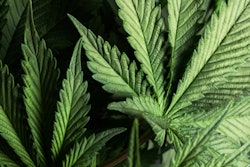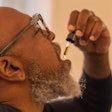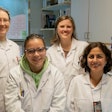
The University of Toronto has been awarded a $1.5 million grant from the Canadian Institutes of Health Research to gather the first evidence of how cannabis use affects the oral health of the country's indigenous population.
The university's team consists of dentistry faculty members, including one who is the associate director of the Waakebiness-Bryce Institute for Indigenous Health at the Dalla Lana School of Public Health. The group will use the five-year grant to partner with indigenous communities to monitor oral health and oral microbiome changes that may be linked to their cannabis use.
"Knowing how big an impact the use of cannabis has on oral health indicators among the indigenous population will be critical towards the development of new policies and guidelines in prevention and treatment of oral diseases," Siew-Ging Gong, BDS, PhD, an associate professor in the University of Toronto Faculty of Dentistry and a co-principal investigator on the grant, said in a release.
Canada's indigenous population already bears a disproportionate burden of oral disease, and the legalization of marijuana that occurred two years ago has added to it. Studies have shown that there are oral health risks associated with cannabis use, including an increase in periodontal disease.
Leaders of indigenous populations and public health officials are concerned about the increased risk these vulnerable communities face. Under the project, researchers will partner with groups and services including the Norway House Cree Nation, the Weeneebayko Area Health Authority, and Alberta Health Services.
Specifically, the researchers will monitor the communities for inflammation of the oral mucosa and periodontal tissues; the development of precancerous lesions and cancers of the mouth, head, and neck; and changes in oral and facial sensory function.
In addition, they will use the learning circle model to raise awareness about cannabis-linked oral health risks. This model uses the First Nations Principles of Ownership, Control, Access, and Possession (OCAP) of data and data collection processes, and it is a setting in which the communities' elders and members share their knowledge.
 Sacred indigenous objects laid out on cloth for Learning Circle Symposium in 2018. Image courtesy of Katia Taylor.
Sacred indigenous objects laid out on cloth for Learning Circle Symposium in 2018. Image courtesy of Katia Taylor.They hope this approach will help create respectful relationships that can have long-term effects on the indigenous communities' oral health.
"The circles will allow us to evaluate the research outcomes through the lens of the community," Herenia Lawrence, DDS, PhD, an associate professor at the university and principal investigator on the grant, said in the release.




















